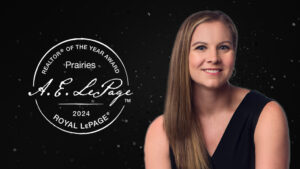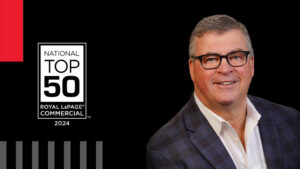
In a world where digital tools, AI and social media dominate the way we do business, it’s easy to forget the importance of genuine human connection. In real estate – a profession built on trust, local knowledge and strong relationships – those connections remain a vital part of long-term success. While technology has made day-to-day operations more efficient, nothing replaces the value of meaningful, personal interactions when it comes to growing a strong referral network.
Today’s consumers are bombarded with digital ads and endless streams of content, making it harder than ever to capture their attention. Many buyers and sellers still prefer to work with someone they know or who comes highly recommended by someone they trust. That’s why word-of-mouth referrals continue to be one of the most effective ways to build credibility and grow your client base.
To explore the lasting value of a referral-based business, I spoke with Jerry Aulenbach, a seasoned REALTOR® with Royal LePage® Noralta Real Estate in Edmonton, Alberta. Jerry has built a successful career by leveraging his vibrant personality, people skills and deep market knowledge to cultivate strong relationships and generate referrals – so much so that approximately half of his business is generated by agent-to-agent referrals. Here’s what he had to say:
Tell me about your journey to building a successful referral-based real estate business. What inspires you to take this approach?
When I first started in this industry, I had no idea what I was doing. I tried a few different ways of generating business, spending money on ineffective advertising and dabbling in some other approaches that I simply didn’t like or wasn’t good at. Eventually, I was introduced to my company’s national conferences and their potential for referral business. It didn’t take long for me to recognize these events as opportunities to shake a lot of hands and swap a lot of business cards.
I also learned the importance of following up and maintaining relationships over time. It could be as easy as connecting with a prospect online and then reaching out to them on their birthday. Speaking of birthdays, I’ve found that a phone call is the most effective way to stand out. A Facebook post is ok, a text is better, but a phone call is best. Because so few people make a call, it means a lot more, and leads to nice conversations that strengthen your relationships. Consistency is also very important. “You never miss my birthday” is a comment I hear often, which is very rewarding to me.
What are the key benefits of relying on referrals compared to other lead generation methods, both for your business and for your clients?
A couple benefits come to mind. I consider it a warm lead when someone else makes an introduction. Often, the person referring advocates for your professionalism and expertise, because they want their client (or friend/relative) to feel like they are in the hands of someone exceptional. No pressure! Another benefit is the likelihood of actually making a sale. The majority of referrals coming my way are qualified purchasers, not just tire kickers. And, you usually get a back story from the individual sending you the client. You can tag-team and bounce ideas off one another throughout the process.
You are known for hosting memorable fundraising events, especially for causes like the Royal LePage® Shelter FoundationTM. How do fundraising events contribute to generating referrals and enhancing your community reputation?
When I first heard about the Royal LePage Shelter Foundation, I was moved in a way that I hadn’t been before. I was immediately sold on the cause and felt a desire to contribute. I started hosting fundraising events in a variety of forms, and have been growing them ever since. For a number of years, I would tour the country in conjunction with various company events, where I would then host my own fundraisers in each city I visited. Through these events, I got to know many Canadian cities very well and I met a lot of people along the way. Aligning yourself with a worthy cause is more than just a good business practice, it’s a way of life. In the case of Royal LePage, the Shelter Foundation is a huge unifying cause that gives the entire company purpose.
How have you developed and maintained a strong personal brand that resonates with both your clients and peer network, and what specific marketing strategies have worked best for you?
My brand has always been a bit silly, as I try not to take myself too seriously. There are countless ways to market yourself and to run a real estate business: big team, small team, independent, strait-laced in a suit, or casual, to name a few. Don’t feel the need to look like someone else, because they already exist. Be yourself, and most people will accept you for who you are. I’ve always tried to have an interesting business card, as it’s one way to express myself creatively and stand out. For a time, my cards were shaped like a piece of bacon, and I even got them smoked at a local deli. Those were a hit, although I did receive the occasional complaint that I made someone’s purse smell like bacon for a couple weeks. I also had a card shaped like my beard, and my current card is shaped like a doughnut. Doing something unexpected is always a great way to be memorable and spark conversations.
How do you nurture relationships with your referral partners, and what practices have you found most effective in keeping your network engaged?
Begin with gratitude! Always express thanks to those who recommend you, be it in an online forum where someone has a referral for your area, or to the actual referrer giving your contact info to their clients – especially when there are so many other options. Once someone does send you a client, it’s easy to get to work right away. Take the time to reach out to them with a quick update call or text to fill them in on your progress. Equally, if things don’t go well with the client or their plans are put on hold, let your referral partner know quickly and honestly. Most people are very gracious and understanding. I also look for opportunities to help my friends in other markets get referrals. I’m often the go-between when someone needs a referral in another city.
What advice would you offer other real estate agents looking to expand from traditional sales techniques to a more referral-based business model?
Make simple, consistent efforts to expand your network. Attend events, get behind a cause, pick up the phone. Don’t rush conversations, because you don’t want those on the other end of the line to feel like they are just a number. Keep a long-term perspective. It’s not going to happen overnight, so enjoy the journey!
Why do you believe it’s important to refer clients to a local expert, rather than trying to handle the transaction yourself?
It’s important to remember that every market and geographical area is different. In many cases, referring your clients to an agent who specializes in a particular area is the best choice, for their benefit and yours. Building a strong network of referral partners across the country allows you to confidently connect clients with local experts, ensuring they receive the best representation, while also earning referral compensation. At the same time, it helps you avoid the potential risks and liabilities of working in an unfamiliar market. Your time and effort are often better spent building your business in your own region. Ultimately, making the right match benefits everyone involved, and in many cases, the favour will be returned.
How do you integrate social media with your in-person networking efforts to support and expand your referral base?
I believe that maintaining an online presence is as simple as posting regularly and remaining engaged in what your contacts post to help remind them you exist. I am always impressed when I see others posting highly-curated content with lifestyle photoshoots. However, my content is more organic and from-the-hip. I post a lot about food, travel and local events. While it may feel counterintuitive, removing some online connections may also be helpful. It’s important to recognize that not everyone is a good fit for you, and it’s ok to part ways.
Looking ahead, what trends do you foresee in the industry that might influence the role of referrals, and how are you preparing to adapt to these changes?
I’ll go back to my thoughts on being yourself and offer a word of caution. Some of the tools we have at our disposal are quite incredible. Use them in ways that save you time and support your existing creative ideas. I would caution against using AI in a way that is insincere or misleading. If I meet you in person after being connected online and discover you’re not quite the person I thought you were, then you have already lost some of my trust. Although new technology can be great and help us work more efficiently, it will never be a replacement for authentic human connection.




